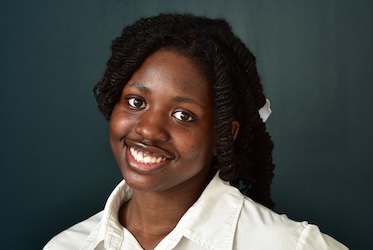
Words That Sell
MARIETTA, Ga. | Jul 24, 2018
Kennesaw State alumnus develops method to predict Amazon.com best-sellers

The difference between a best-selling pillow and one that underperforms on Amazon.com could rely on descriptors like “fluffy” and “soft.”
After using a complex set of computer algorithms and machine learning, recent Kennesaw State University alumnus Michael Kranzlein found that the success of products on Amazon.com could be directly tied to specific words and images used in product descriptions. When it comes to pillows, for instance, consumers could be more likely to buy when the product is described as “fluffy” as opposed to “soft.”
Kranzlein, who graduated with a master’s in computer science this May, said he noticed a lack of research on using algorithms to analyze best-sellers on ecommerce platforms. After enrolling at Kennesaw State in 2016, he focused his research on developing a system capable of identifying best-selling products with up to 80 percent accuracy.
To accomplish this, Kranzlein used nearly two decades worth of Amazon data, which included product reviews, descriptions, images and sales rank. The data was processed using five classifier algorithms that sort raw text and image data into predefined categories. This approach takes advantage of machine learning, an approach that allows computers to make informed decisions based on the data computer programs have analyzed. The system is capable of distinguishing best-selling items from those that won’t perform as well in the marketplace based on the descriptions.
While some companies can provide insight on product descriptions based on word count, Kranzlein’s proposal takes this approach further by seeking out patterns, such as keywords commonly used to describe best-sellers. In Amazon’s books category, for example, product descriptions that contain the name “Seuss” are more likely to succeed while a descriptor like “fluffy” could boost pillow sales in the home goods category.
The Pew Research Center recently found that 79 percent of U.S. adults are reported to have shopped online with 28 percent saying they shop online frequently. In 2015, Amazon reported a 50 percent increase in the number of vendors using its ecommerce platform, meaning there is more competition than ever to capture the attention of the American consumer, Kranzlein said. His research could be used as another tool that allows sellers to gain insight on why some products perform better than others while at the same time allowing buyers to make more informed decisions.
“This is a problem on which very little has been published,” said Kranzlein, whose project placed third at KSU’s Computing Showcase in April. “There have been a couple of works specifically related to product descriptions and images, and none of those utilize Amazon data. One of my main motivations was to fill a gap in the research and using existing models to generate better product performance.”
While studying in Kennesaw State’s College of Computing and Software Engineering, Kranzlein took courses in machine learning and big data analytics, both of which he said directly contributed to his research.
“Those courses definitely gave me the toolkit that I needed to understand some of the gaps in the research and also how to apply what I’ve learned using these methods,” said Kranzlein, who chose to pursue graduate studies at KSU since it allowed him to work full time and take courses in the evening. “It was exciting to see how research I conducted at school can be directly applied to work in industry.”
Since graduating, he has continued to work as a senior program analyst at Georgia-Pacific. In August, Kranzlein will begin a doctoral program in computer science at Georgetown University, where he will study computational linguistics and natural language processing.
– Travis Highfield
Related Stories

Kennesaw State to revive bathtub race tradition with new video game

Kennesaw State student develops AI tools to help first responders diagnose behavioral health issues

Kennesaw State computer game design student launches studio, first video game

Kennesaw State student integrates artificial intelligence into architectural design education
A leader in innovative teaching and learning, Kennesaw State University offers undergraduate, graduate, and doctoral degrees to its more than 47,000 students. Kennesaw State is a member of the University System of Georgia with 11 academic colleges. The university’s vibrant campus culture, diverse population, strong global ties, and entrepreneurial spirit draw students from throughout the country and the world. Kennesaw State is a Carnegie-designated doctoral research institution (R2), placing it among an elite group of only 8 percent of U.S. colleges and universities with an R1 or R2 status. For more information, visit kennesaw.edu.














